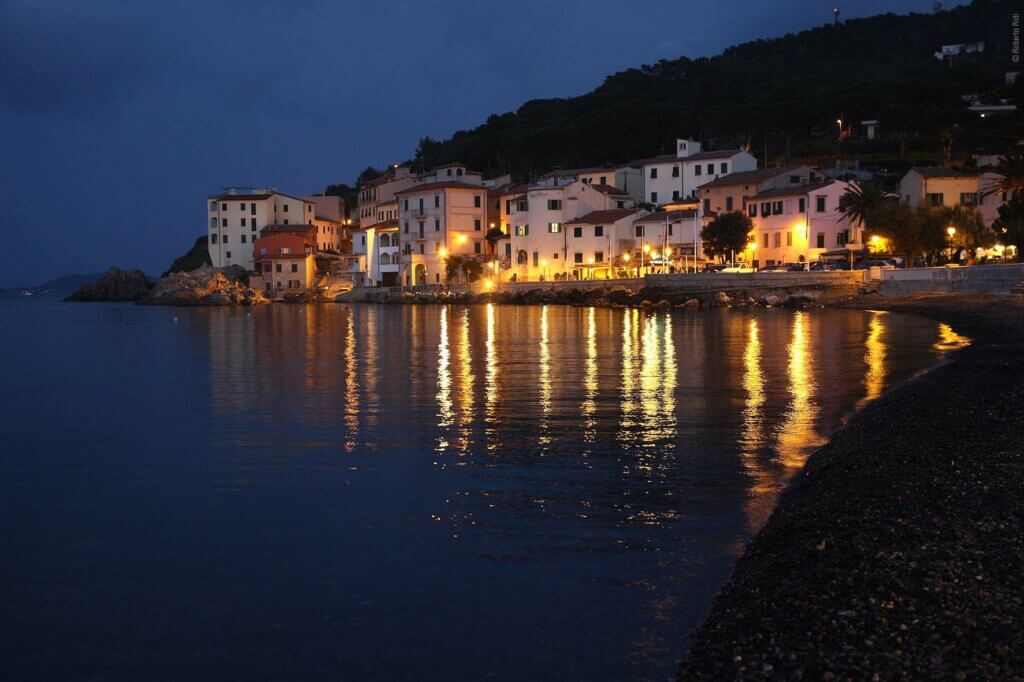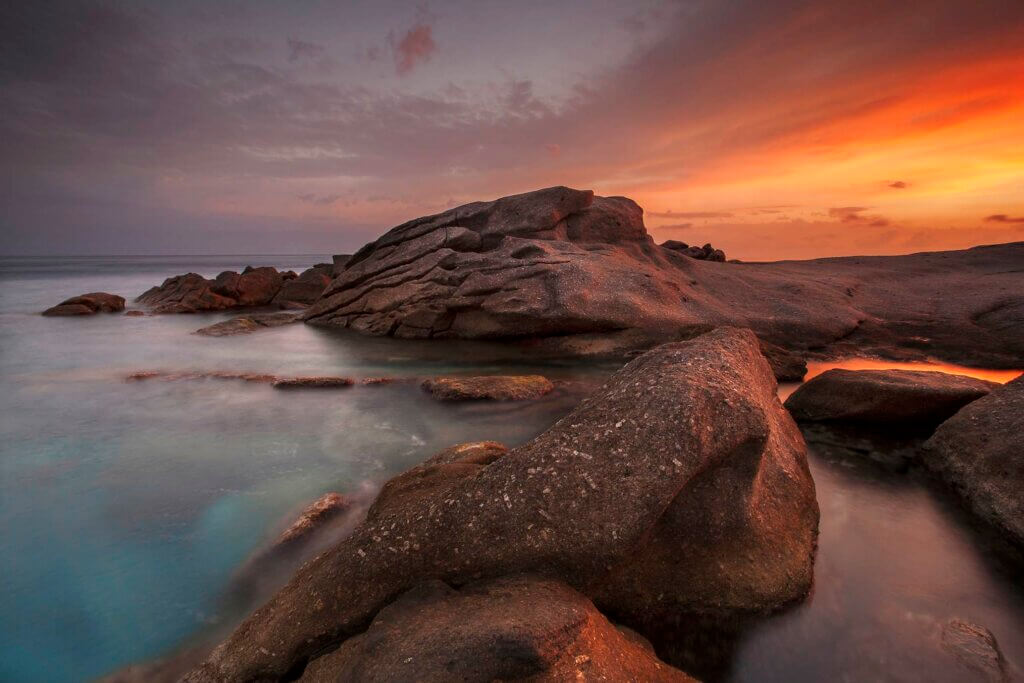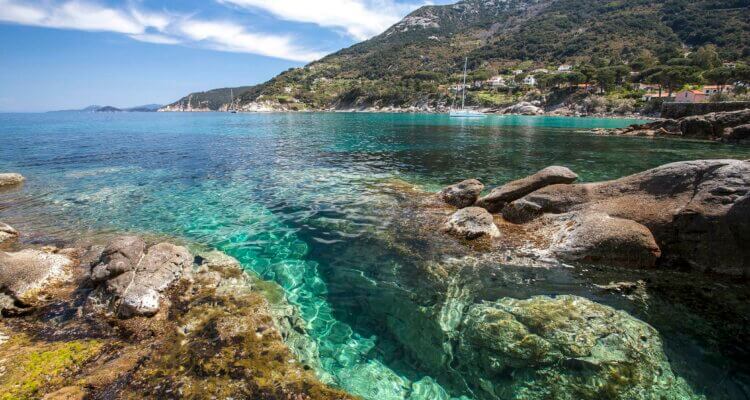Cliffs and mountains, dunes trapped in granite magma for millions of years, chestnut forests, sandy beach and crystal-clear sea – Capo Sant’Andrea on the northwestern tip of Elba captivates with spectacular contrasts.
People have always been attracted to the largest cape in the northwest of the island of Elba. Already in the Paleolithic Age, hunters roamed its forests and made rich prey, as evidenced by numerous tools for meat grinding that are tens of thousands of years old.
Much later, the Etruscans discovered the geographical advantages of the tip of the island. For them, representatives of an advanced civilization that engaged in long-distance trade long before the rise of Rome, what is now Capo Sant’Andrea was a strategic outpost in the Tyrrhenian Sea and at the same time a perfect refuge. Lined by high cliffs, the bay offered protection from attackers and braked stormy westerly winds. The Etruscans were masters of iron working. The sandy soils of the cape are still littered with so-called schiumoli, remnants of a fusion process to purify the iron.
Treasure hunting
Dating back to Roman times, two wrecks were accidentally found off Capo Sant’Andrea a few decades ago. The first rests on the bottom near the coast at a depth of just 32 feet. The second was discovered barely 656 feet further out, where it has lain at a depth of 148 feet since the disaster occurred some 2,000 years ago. Some of the cargo has been lifted, including grinding stones for wheat and amphorae containing wine. They can be seen in the island’s two archaeology museums. Ultimately, however, the seabed at the cape has remained the “natural museum” for the ancient ships and the rest of the cargo that never reached a harbor.

A guardhouse high above the sea testifies to the fear of the Ottomans, who in the 16th century were also expanding in this part of the Mediterranean. More important for the island, however, is a chapter of history that began in the first days of May 1814.
French emperor
Napoleon dropped anchor off Elba with the battleship “Undaunted”. After his devastating defeats, Austria, Russia and Prussia had forced him to resign as Emperor of France in the Treaty of Fontainebleau. The ousted emperor was sent into exile on Elba, the island having been granted to him as a principality. Napoleon stayed there for ten months. He set up camp near a pilgrimage site at Capo Sant’Andrea. From the highest point of the island, he watched the ship movements in the Tyrrhenian Sea. Meanwhile, he shared his tent in the chestnut grove with Maria Walewska, a Polish countess, his mistress and mother of their son. For reasons of state policy, a shared future with his mistress was not an option for the power-mad man who wanted to reclaim the throne. At Capo Sant’Andrea, the couple spent their last days and nights together before parting ways forever.

Maurizio Testa is convinced that the magnificent Mediterranean landscape with its hidden traces of human history and human stories makes the Cape an emotionally moving destination.
The hotelier, lecturer and book author has joined forces with restaurateurs, tour guides and other professionals to form the Capo Sant’ Andrea consortium. “We want to take marketing for our home into our own hands and get the world excited about a very special piece of Elba,” says Testa. The bathing season at the cape extends into October. “But we want to encourage tourists to experience more, to go exploring in the hinterland.” There, a network of hiking trails crisscrosses the massif of Monte Capanne. The mountain of igneous rock is the highest elevation of the Tuscan Archipelago. On a clear day, the view from its summit reaches as far as Corsica and the Italian mainland coast. If you descend the northern slope to the tiny village of Poggio, you will soon reach the spring from which Napoleon had drinking water brought to him every day. Elba’s inhabitants have named it after him, the most famous man in the island’s history – Fonte Napoleone.
Its water is still today a refreshing treat on the hike. More info https://www.caposantandrea.it/en



